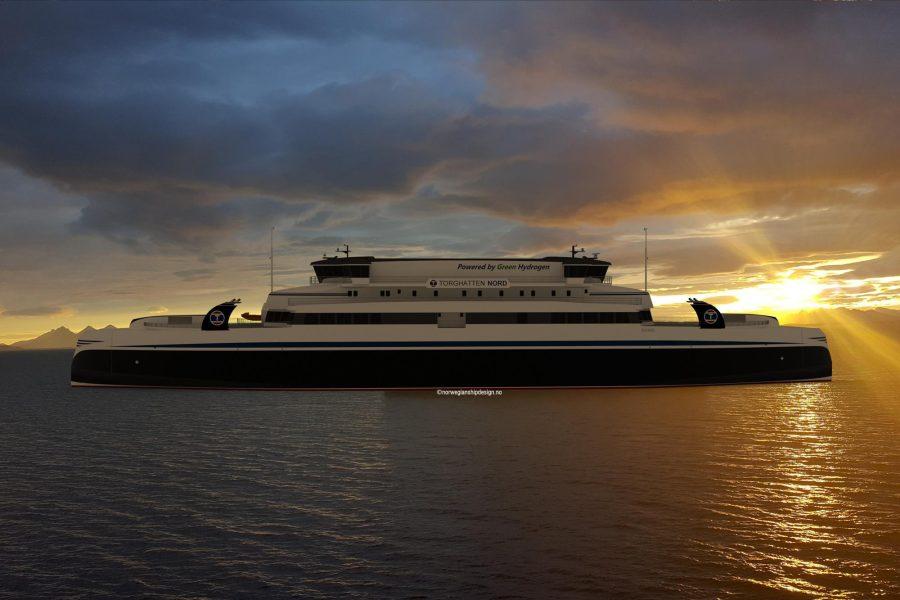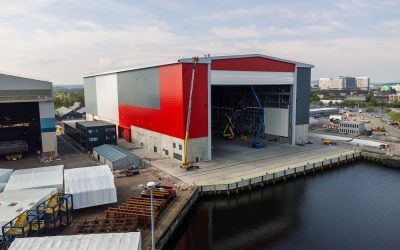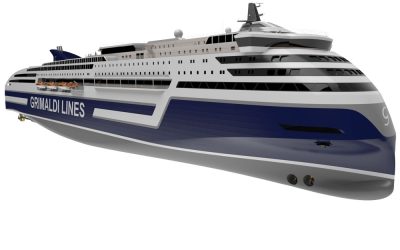The recently decided decarbonisation targets from the IMO will no doubt be leading shipowners to target renewable fuels more so now than ever. Not least because the agenda set out at MEPC80 obligates member states to a minimum commitment to ensure the uptake of alternative zero and near-zero GHG fuels by 2030.
One company poised to provide for customers in the face of this challenge is PowerCell Group. The Swedish hydrogen fuel cell manufacturer, based in Gothenberg, has lately expanded its base to include a range of products, both in and out of maritime sector. The company has also opened offices in several countries, such as China, Italy, Germany, and most recently the United States.
In March, they signed a contract to power the renewed ferry connection between Lofoten and Bodø. The upgrade of the ferry link in Norway’s picturesque, but weather-exposed, far northern region will be the largest hydrogen powered marine project in the country. The two ferries, which will be operated by the company Torghatten Nord, will use PowerCell’s Marine System 200 fuel cells. Norwegian Public Roads Administration (NPRA) has stated that that they want the route to be operated on 100% hydrogen.
“This is a huge milestone. It’s the largest ever in maritime. The longest distance on this connection is three and a half hours. So that’s why they’re going to hydrogen because it needs to be tested at a larger scale. Today there is one other ferry using hydrogen and that’s only 400kW. So this is groundbreaking for PowerCell,” Stig Kallestad, business manager at PowerCell Group’s Norwegian office says.
Each ferry with 6 MW power each. The cells themselves have a lifetime of 15 years in service before they will need to be changed. The ferries will reduce CO2 emissions by 26,500 tonnes annually compared to current models which operated on liquid natural gas (LNG).
For the team at PowerCell Group it is important to define how to optimise the 15-year cycle of their fuel cells in order to work out an efficient replacement cycle to operate on. As with all engines the operation quality of fuel cells deteriorates over time. Enhancing the capability of customers to service and replace their cells on a small budget is key and is something the company is keen to be competitive in.
Despite the lucrative government contract in Norway the company is not allowing their orders to dictate their progress as innovators in the industry. According to Richard Berkling, chief executive officer at PowerCell Group, who spoke to RINA at Nor-Shipping earlier this year, the company is creating the blueprint for how hydrogen fuel cells are going to work in the future.
“One driver at the moment is the increased availability of hydrogen and the fact that we now see initiatives where you use different fuels to then get hydrogen. It could be green ammonia, it could be green methanol where you get so much more energy content and energy density and you refine the hydrogen closer to the operation, which means you close the distance and minimise costs. All of these things are accelerating this transition”
The company is willing to work with a broad range of customers. “A lot of our competitors will only work with one partner. But when it comes to storage, integration, and electrical installation we will work with everybody in this,” says Kallestad. The company is currently planning a new 1.6MW fuel project in the United States which will operate on the Mississippi River.
In July they also expanded operations further with follow-up order with German company H2FLY to deliver of fuel cell systems for aircraft. The company signed the first order with H2FLY in June 2022 which included deliveries of multi-megawatt fuel cell systems as well as services and tests.
In regards to efforts made by others to decarbonise Berkling is confident that demand will grow rapidly over the next few years, which can only benefit the PowerCell Group. “The market has gone from just trying to decarbonise and be a good citizen to fighting for suppliers. So now the industry is transitioning quite rapidly,” he says.
“This is about taking possession because the consensus is that the market for hydrogen will grow three to five times faster than the underlying GDP over the next 30 years. That means that if you invest into this you are part of something that could grow exponentially faster than the existing market. Those who are late to transition, will lose their position and in some segments they will disappear”, Berkling concludes.






